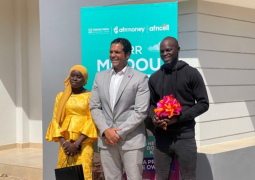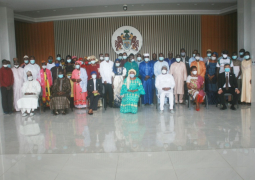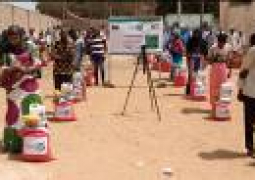BANJUL, JUNE 6th, 2022— The Gambia came through the pandemic less impacted than many of its regional and similarly tourism-dependent peers. Even as number of tourists collapsed, the economy has been supported by a strong agricultural performance, international support measures, and record levels of official remittances which in turn have driven private sector investment.
The World Bank, The Gambia Economic Update, June 2022 titled ‘Coming Back Stronger’ states that just as it suffered less in 2020 than its peers, its recovery in 2021 has been more tentative, exposing some of the long-standing structural issues in the economy.
“As the immediate impact of the pandemic recedes, The Gambia looks set for modest growth in the medium term, driven by a rebound in tourism, investment, and agriculture. However, a low vaccination rate, weather-related risks to agriculture, and the rising cost of living globally, exacerbated by the war in Ukraine, could slow the recovery,” said Feyi Boroffice, World Bank Resident Representative.
The report, therefore, suggests actions to strengthen governance and institutional structures, build fiscal resilience to respond to future shocks, and address the binding constraints of underinvestment, low productivity and lack of diversification that are preventing the economy from reaching its full potential.
The report further highlights that the pandemic has left its mark on the population, and particularly human capital. School closures have taken their toll, especially among households that were reliant on school meals, and food insecurity is rising. In a special section on the use of evidenced-based policies to help prevent this scarring become permanent, the report highlights three key priority areas where the use of data—and, more importantly, its reuse—can ensure the best use of scarce fiscal resources.
“Progress has been uneven across social sectors, however. The Gambia's development of social protection sector is hampered by scarce data that do not support effective monitoring and evaluation and resultantly, service delivery. In education, investment in more timely and granular data is already informing policy decisions and improving service delivery but better integration and data sharing could maximize these data’s usefulness. In the health sector, digitization of existing paper systems and better integration would help the Government with its ambition to provide universal health coverage and improve health outcomes.” said Mehwish Ashraf, World Bank Country Economist and lead author of the report.
Contacts:
In Banjul: Haddija Jawara, (220) 7777757, hjawara1@worldbank.org
For more information about the World Bank’s work in The Gambia visit: https://www.worldbank.org/en/country/gambia
Facebook: http://www.facebook.com/worldbankafrica
Twitter: https://twitter.com/WorldBankAfrica
YouTube: http://www.worldbank.org/africa/youtube
Podcasts: https://www.worldbank.org/en/news/series/afronomics-a-podcast-series
News Release
2022/076/AFW





